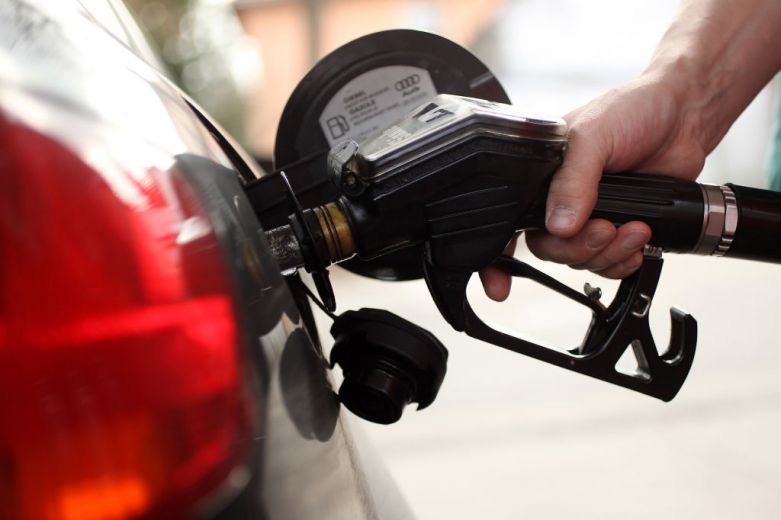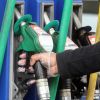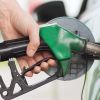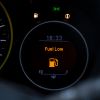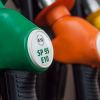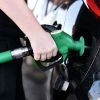As well as hitting a new record-high price of 167.3p on Tuesday 22 March, the average cost of a litre of unleaded petrol went up by a huge 11.62p to end the month at 163.28p per litre – the largest ever increase the RAC has recorded in a single month. The previous biggest monthly increase was in October of last year when petrol prices rose by 7.43p a litre.
But the rise in petrol prices in March was dwarfed by what happened with the cost of diesel. The average price of diesel rocketed by an astonishing 22.06p a litre, peaking at 179.9p on 23 March, ending the month at 177.29p.
This increase is three times the size of that recorded in May 2008, the previous worst month for diesel price rises, when the cost of a litre went up by 8.43p.
The impact of the almost-daily price rises through March on drivers’ wallets is severe. It now costs nearly £90 (£89.80) to fill a 55-litre family petrol car, £6.38 more than it did at the start of the month and £22 (£21.93) more than a year ago (a 32% increase).
The effect of the rise in diesel prices is even more pronounced with the cost of a tank up £12 (£12.13) in March, from £85.38 to £97.51 – around £15 more than it did at the start of January, and almost £28 (£27.84) more than a year ago (a shocking 40% increase).
Forecourt prices increased through March as a result of rising wholesale fuel costs, themselves caused by a further hike in the cost of oil following the start of the Russian invasion of Ukraine.
A barrel cost $112.99 at the start of March before peaking at a 14-year high of $137.72 on 8 March, two weeks after the war began. While the price fell to $109.98 by the end of the month, rises earlier in the month had already pushed up wholesale fuel prices, causing drivers to pay even more to fill up.
- RAC Fuel Watch - latest petrol and diesel prices
- How to save fuel - the ultimate guide
- What affects the price of fuel?
Drivers will be rightly wondering why the Chancellor’s 5p fuel duty cut hasn’t made a meaningful difference at the pumps. This is in part due to the fact that the cut applies to the wholesale cost of fuel and unfortunately took place on a day when the oil price jumped by $6 a barrel, leading to the cost that retailers pay to buy fuel going up. If the Chancellor hadn’t cut duty, drivers would have been paying even more for their fuel then they had been. Despite this, average petrol and diesel prices have so far fallen by a disappointing 3.73p and 2.61p respectively since the Chancellor’s address to the Commons.
RAC fuel spokesman Simon Williams said: “March 2022 will go down in the history books as one of the worst months ever when it comes to pump prices – over the 22 years we have been monitoring pump prices as part of our Fuel Watch initiative we’ve never witnessed such extreme rises in prices over such a short period. To describe the current situation facing drivers at the forecourt as ‘bleak’ is therefore something of an understatement.
“Without question, these figures show in the starkest possible terms just how much fuel prices are contributing to the cost-of-living crisis which will be affecting households up and down the country. We know that so many drivers depend on their vehicles – for instance, because of a lack of feasible alternatives – so fuel prices must be starting to have an enormously detrimental effect on people’s finances, especially those on lower incomes.
“Drivers might well be feeling aggrieved that the Chancellor’s ‘historic’ fuel duty cut announced in the Spring Statement just two weeks ago has done nothing to protect them from price increases. A 5p cut in duty should, in theory, have led to a 6p cut in prices at the pumps as a result of the Government taking less VAT – but that is on the basis that wholesale prices stay still, which is hardly ever the case, and retailers passing on their reduced costs to driver fairly. Petrol prices have only come down by an average of 3.73p since 23 March, taking them to a level seen just three-and-a-half weeks ago, with diesel down even less – by just 2.61p on average.
“The fact pump prices have fallen so little reflects the fact that the cost to retailers of buying fuel had been going up ahead of the Spring Statement. Had the Chancellor temporarily cut VAT rather than fuel duty on fuel, as we asked him to do, the impact on pump prices would have been immediate with drivers benefitting straight away. Cutting VAT would also have gone some way towards shielding drivers from future increases – something a cut in duty just can’t do.
“Sadly, this Easter – traditionally the biggest getaway time of the year on the roads – is shaping up to be the costliest on record for drivers and there’s very little they can do to escape the high cost of filling up. Seeking out the cheapest petrol stations and driving as efficiently as possible are the best ways of making every pound spent on fuel go as far as possible.”
The RAC website carries an ultimate guide to saving fuel and saving money.
Regional pump prices compared
| Unleaded | 1/3/2022 | 21/3/2022 | Change |
|---|---|---|---|
| UK average | 151.67 | 163.28 | 11.61 |
| East | 152.00 | 163.35 | 11.35 |
| East Midlands | 151.53 | 163.39 | 11.86 |
| London | 152.31 | 163.70 | 11.39 |
| North East | 150.11 | 162.10 | 11.99 |
| North West | 151.76 | 163.35 | 11.59 |
| Northern Ireland | 147.81 | 162.82 | 15.01 |
| Scotland | 151.28 | 162.74 | 11.46 |
| South East | 152.67 | 163.93 | 11.26 |
| South West | 152.01 | 163.44 | 11.43 |
| Wales | 150.70 | 162.21 | 11.51 |
| West Midlands | 151.75 | 163.72 | 11.97 |
| Yorkshire and the Humber | 151.04 | 162.61 | 11.57 |
| Diesel | 1/3/22 | 31/3/22 | Change |
|---|---|---|---|
| UK average | 155.23 | 177.29 | 22.06 |
| East | 155.23 | 177.19 | 21.96 |
| East Midlands | 155.01 | 176.38 | 21.37 |
| London | 155.72 | 177.45 | 21.73 |
| North East | 154.56 | 176.35 | 21.79 |
| North West | 155.19 | 176.94 | 21.75 |
| Northern Ireland | 150.97 | 176.03 | 25.06 |
| Scotland | 155.29 | 177.70 | 22.41 |
| South East | 156.31 | 178.15 | 21.84 |
| South West | 155.90 | 177.84 | 21.94 |
| Wales | 154.68 | 177.01 | 22.33 |
| West Midlands | 155.59 | 177.49 | 21.90 |
| Yorkshire and the Humber | 155.07 | 177.28 | 22.21 |
Find out more about UK petrol and diesel prices on the RAC website.

RAC sale – up to 33% off*
• Roadside cover from £5.29 a month†
• We get to most breakdowns in 60 mins or less
• Our patrols fix 4/5 breakdowns on the spot


